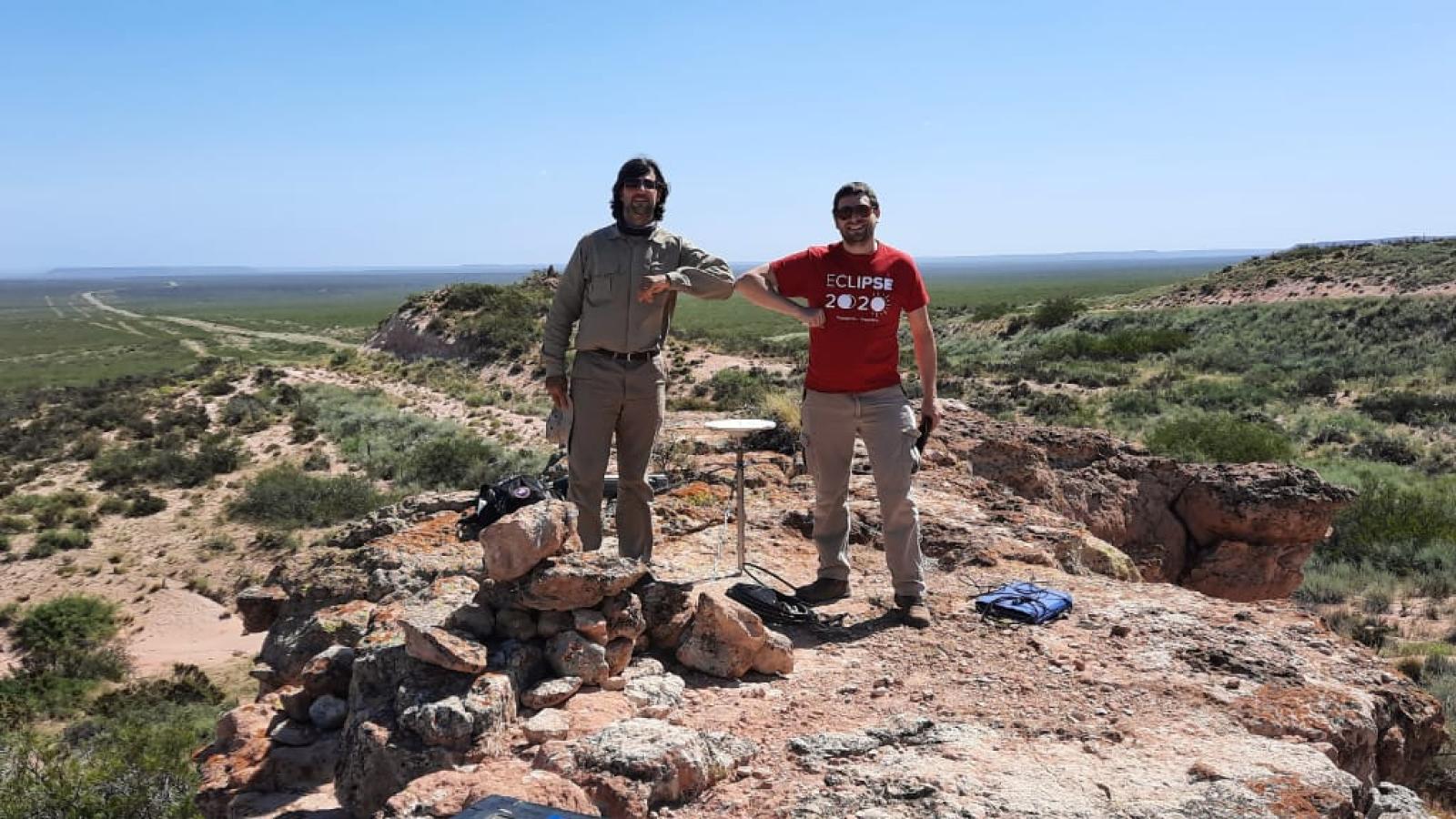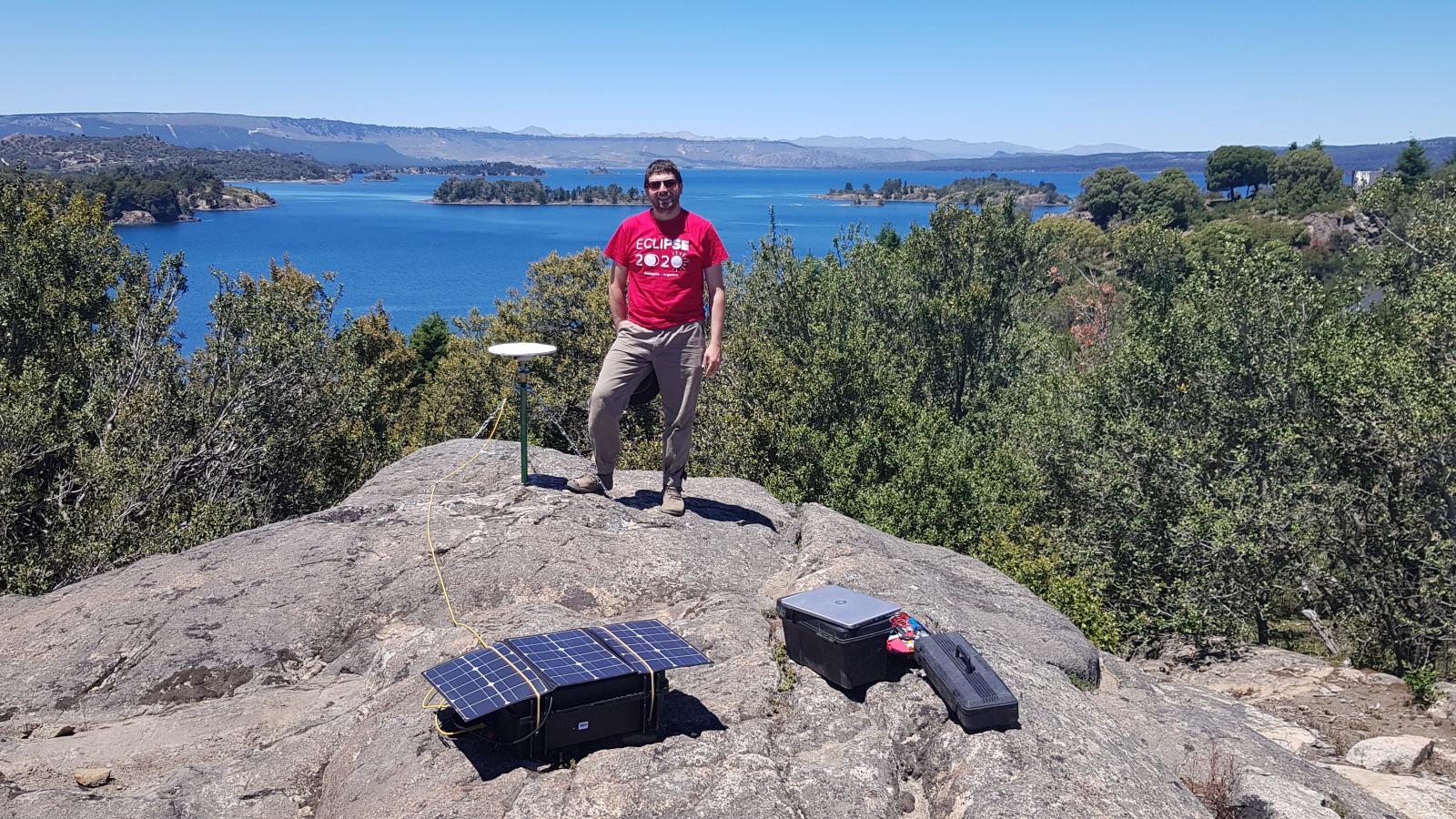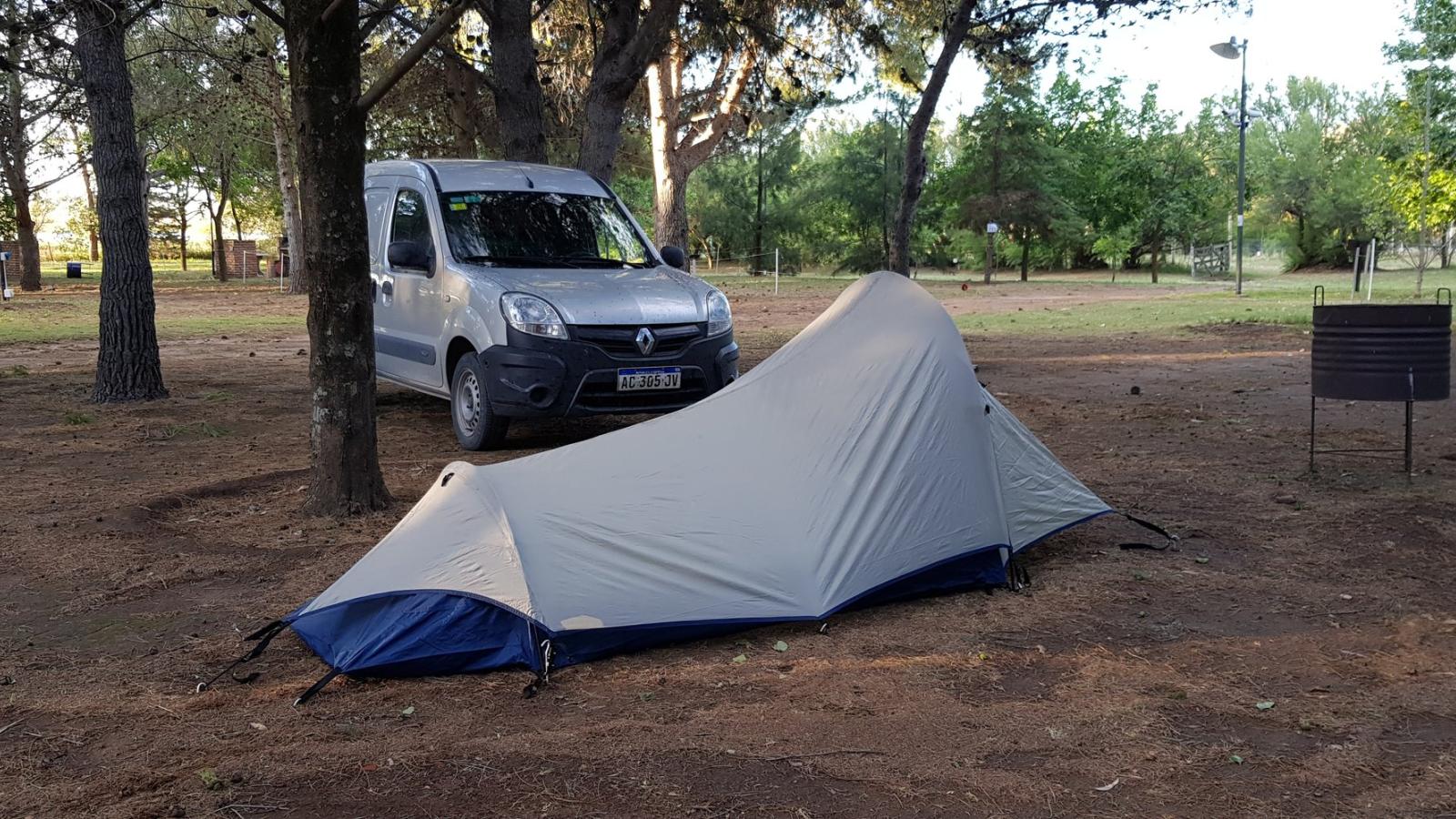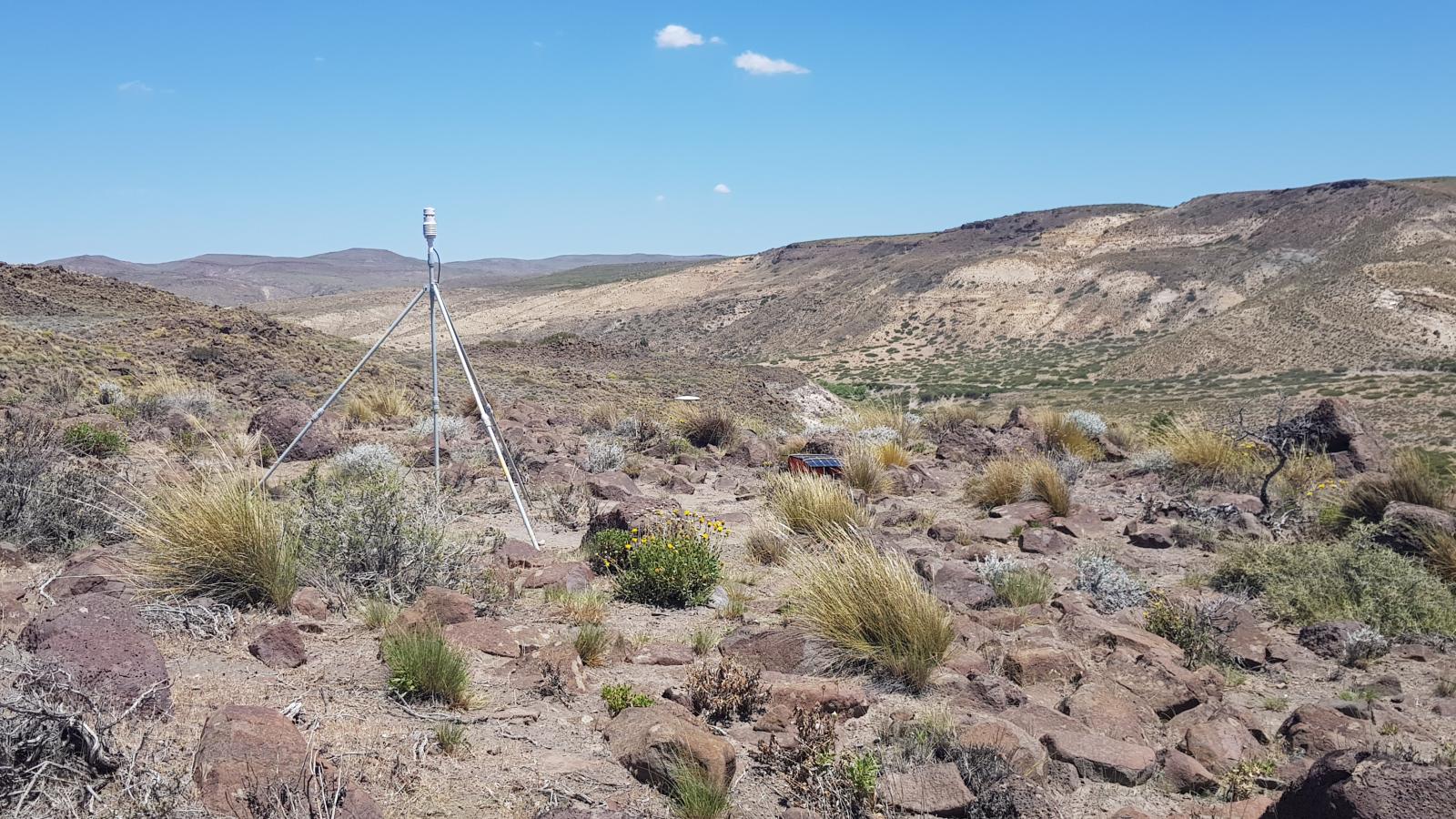Prof Gomez's Eclipse Field Work in Argentina a Great Success
On December 14, 2020, a total solar eclipse occurred in Chile and Argentina. The eclipse crossed the Andes Mountains generating atmospheric disturbances from the troposphere to the ionosphere. Assistant Professor Demián Gómez was in Argentina and deployed 13 GNSS stations and 6 weather stations to study the eclipse perturbations in the lower and upper atmosphere. The weather stations provided information about temperature and wind changes during the eclipse, while the GNSS stations captured data about ionospheric changes in the upper atmosphere. Through active outreach with the local land surveying community, another eight sites were also measured during the 3 hours of the eclipse. These were challenging times to do fieldwork since activities occurred in the middle of the COVID-19 pandemic. Although the campaign happened in a remote area in Patagonia, the team tried to keep social distancing measures during the field activities. To minimize the risk of getting the virus, the team camped as much as possible rather than staying at hotels. The campaign was a great success and all data were collected as planned.




